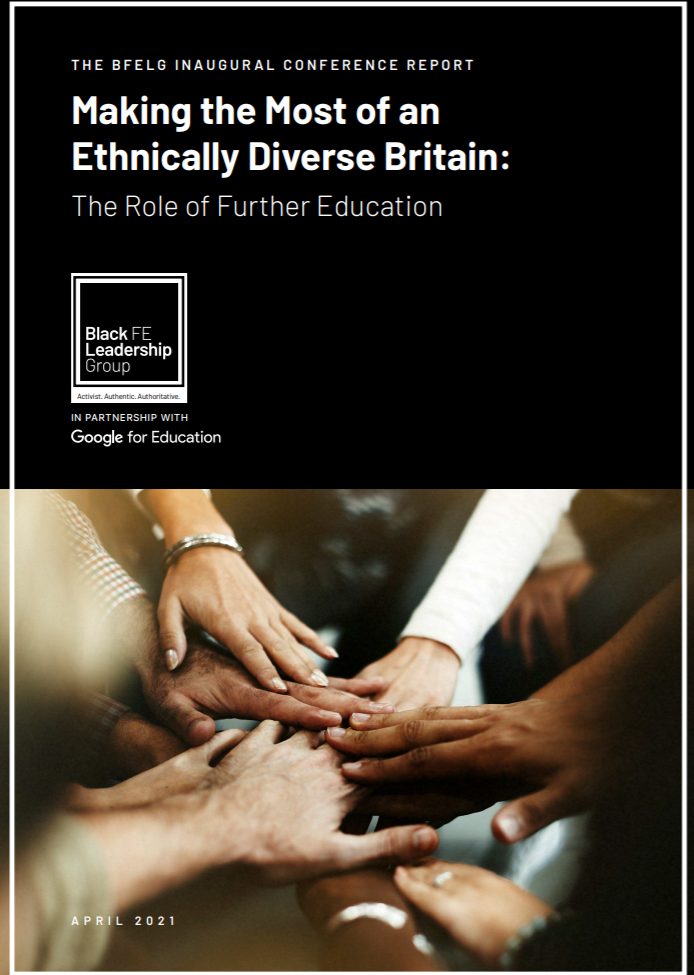MAKING THE MOST OF AN ETHNICALLY DIVERSE BRITAIN: THE ROLE OF FURTHER EDUCATION

The Inaugural BFELG Conference took place on Tuesday, 23 February 2021. It was held online in partnership with Google for Education, and skillfully compered by Rosemary Campbell-Stephens MBE.
Rosemary is a veteran, inspirational educator, who embraces the label ‘disruptor’. Her breadth of experience is international.
This report summarises the presentations and key messages of the keynote speakers: Robin Landman OBE and Amarjit Basi, BFELG Executive Members. Robin reminded us that the Black dividend was of no small value to the UK economy (estimated at £300 billion per annum in purchasing power). Amarjit Basi an earlier contributor to the dmh associates Annual Conference 2020 reminded us all on rapidly changing demographics. Diversity and inclusion brings social, economic and cultural benefits to the economy and wider society.
“By 2030, 1 in 5 UK citizens will be Black. This will increase to 1 in 3 by 2061. Indeed, Black people will account for more than 20% of the working population within 30 years. From 2020 to 2028, while there will be an expansion of ALL 16 – 18-year-olds by 17%, the growth in Black students will be nearly a quarter, 23%.”
The Conference was a timely intervention since it coincied with the January 2021 publication of the Skills for Jobs White Paper. The White Paper
focuses on harnessing the full potential of Post-Brexit Britain, enabling Post-Covid Recovery and “Levelling Up” Britain.
The BFELG inaugural highlighted several crucial points related to the White Paper, with an underlying concern being how to reverse both the damaging effects of a decade of lost potential in the FE system and the disproportionate impact of the Covid pandemic on Black students, staff and communities.
